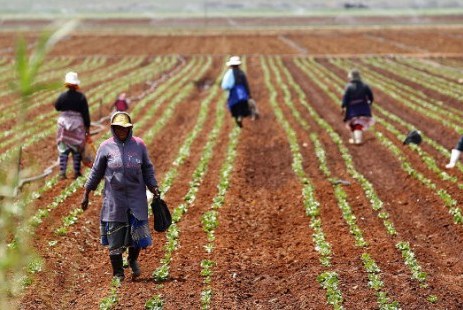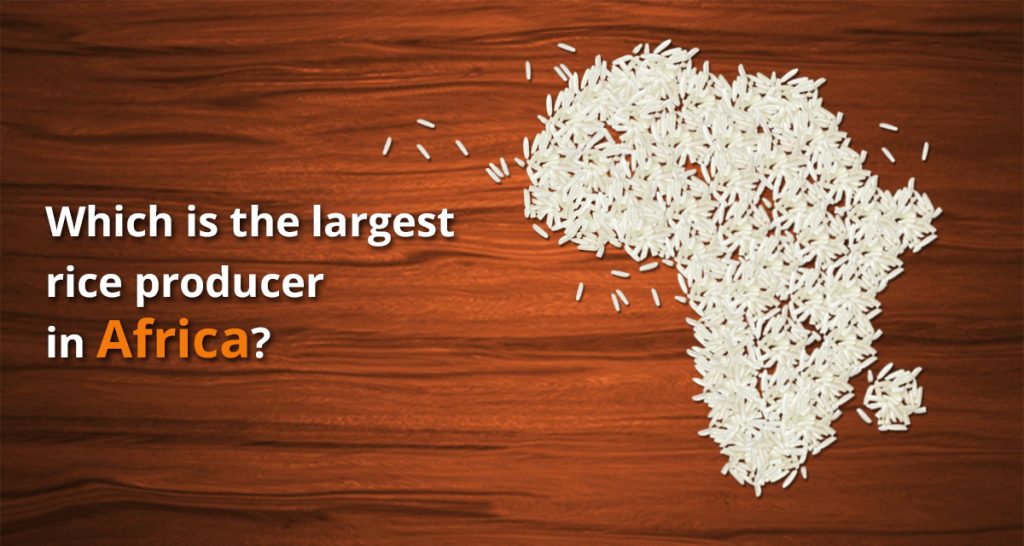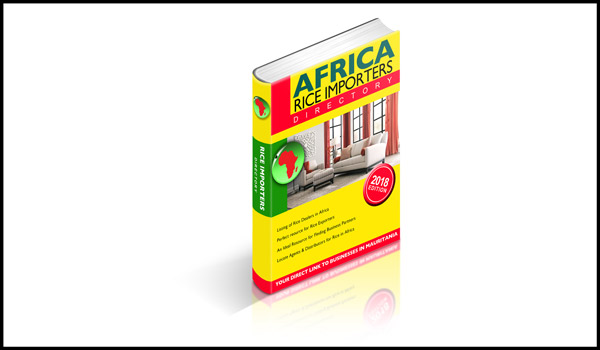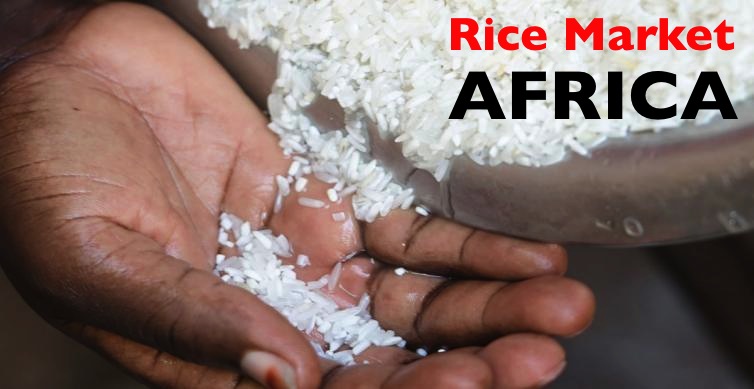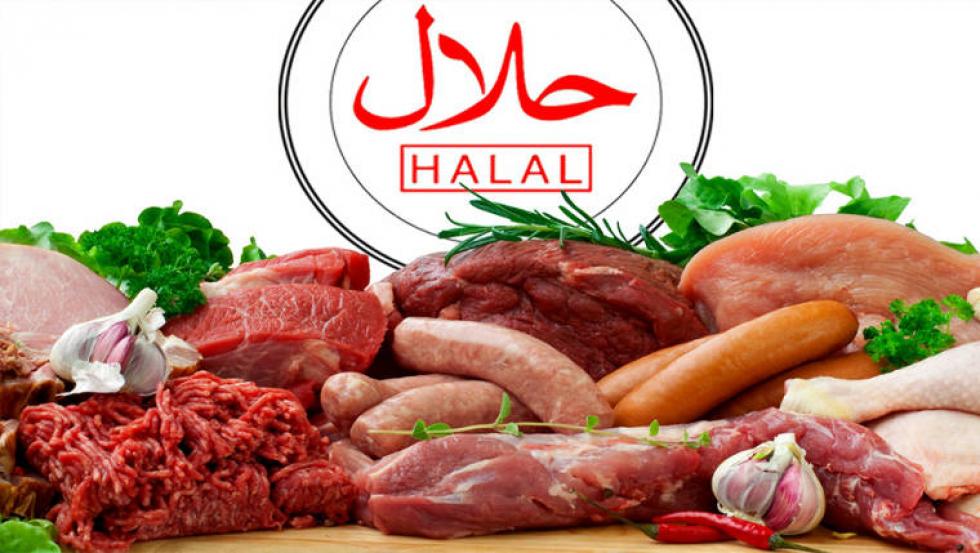Rice Importers in Africa Face New Challenges
According to industry reports, Africa imported 17 million tonnes in the last five years.
Many African rice importers import a significant amount of rice for local consumption and regional distribution. However, the relatively small country of Benin has emerged as one of the leading rice importers in Africa.
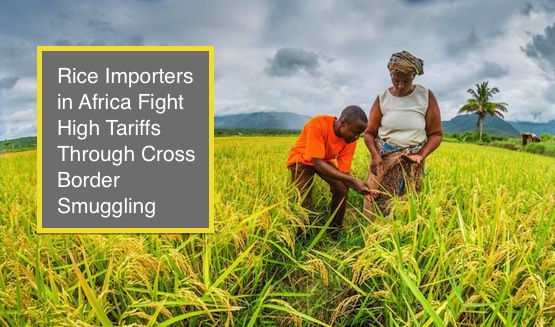 At Nigeria’s border post of Seme, goods are often smuggled into Africa’s biggest economy from its smaller neighbor Benin. However, the Seme border post between Nigeria and Benin wears a deserted look these days. The slowdown in the movement of goods between Benin and Nigeria is a result of import restrictions and tighter border policing as President Muhammadu Buhari seeks to diversify the oil-dependent economy by boosting agriculture, especially rice production.
At Nigeria’s border post of Seme, goods are often smuggled into Africa’s biggest economy from its smaller neighbor Benin. However, the Seme border post between Nigeria and Benin wears a deserted look these days. The slowdown in the movement of goods between Benin and Nigeria is a result of import restrictions and tighter border policing as President Muhammadu Buhari seeks to diversify the oil-dependent economy by boosting agriculture, especially rice production.
Two years ago, Buhari set 2018 as a target to end Nigeria’s status as the world’s second-largest importer of the grain after China and become self-sufficient. He’s since overseen investments of almost $1 billion in farming and milling, virtually banned rice importers from buying foreign exchange, raised tariffs to as high as 60 percent and pushed the central bank to lend to farmers. Confident his administration is making progress, he told growers recently that “our policies are working.”
Thai Rice Imports to Africa
But the numbers tell a different story: they suggest smuggling is rife because local producers are unable to meet growing demand in the nation of 180 million people, where rice is favored over traditional staples such as yams and cassava by an increasingly urbanized population.
Nigeria grew 3.7 million metric tons of rice in 2017, a 4 percent increase from a year earlier. At the same time, imports rose 19 percent to 2.5 million tons.
Many imports are smuggled in from Benin, which despite a population of 11 million – barely 5 per cent of Nigeria’s population – is now the world’s biggest buyer of rice from Thailand, the number two exporter globally. Official shipments to Nigeria have plummeted by more than 95 percent in the past four years, while those to Benin have surged, according to the Thai Rice Exporters Association.
Rice consignments are being smuggled to Nigeria from Benin through the many unofficial border crossings between the two countries.
With its far lower tariffs and better-run ports, Benin has a long history of smuggling goods to Nigeria, from frozen chicken to tomatoes and cars.
It is estimated that 90 percent of Benin’s rice is bound for its bigger neighbour. Smugglers offload Thai and Indian rice from the port of Cotonou and take most of it to Nigeria’s largest city, Lagos, which sits just across the Seme border in the south. Some even truck it as far as Niger, where they collude with customs officials before taking it to northern Nigerian cities such as Kano.
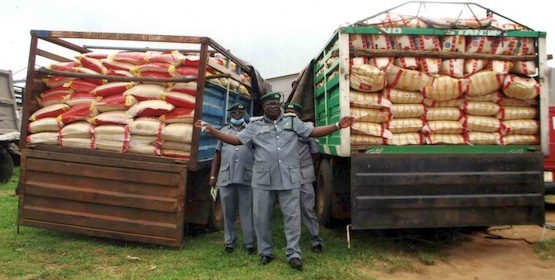 “A text message comes saying: ‘Go!,”’ says George, local guide. “And they drive through. The border gates are open and the guards are looking in the other direction. The evidence is very clear that smuggling is continuing on a large scale. It’s a massive problem.”
“A text message comes saying: ‘Go!,”’ says George, local guide. “And they drive through. The border gates are open and the guards are looking in the other direction. The evidence is very clear that smuggling is continuing on a large scale. It’s a massive problem.”
Once it enters Nigeria, traders often repackage and sell it as local rice.
While the government touts the decline of official imports as evidence that Nigeria is producing more rice, smuggling fills the gap between demand and supply, according to Ade Afeko, a member of the nation’s main manufacturing body.
“It seriously needs to be curbed,’’ Afeko said from Kano, which he says is “swamped’’ with foreign rice.
While smuggling from Benin and Niger has increased, it’s still feasible to end rice imports this year, said Olukayode Oyeleye, a spokesman of the Ministry of Agriculture.
George at Ecobank thinks the powerful smuggling industry will be difficult to curb. “There are so many vested interests in the smuggling of rice and there’s so much demand,” he said.
The Rice Market in West Africa
Nigeria isn’t the only country in West Africa that’s trying to be self-sufficient: Senegal and Ivory Coast have raised rice output, too. But Nigeria faces a tough task reviving its agricultural sector, which went into decline when oil was discovered in the 1950s. Farmers battle with a host of problems: poor-quality seeds, a dearth of financing to buy or borrow equipment such as tractors, bad roads and a lack of warehousing.
Most farmers harvest their crop by hand on an average 0.4 hectares (1 acre) of land, which makes it difficult to achieve economies of scale, according to Dimieari Von Kemedi, managing director of Alluvial.
Alluvial is buying crops in central and southeastern Nigeria with the aim of supplying half a million tons of rice a year to millers by 2020. It’s targeting yields of 4 tons per hectare, almost double what growers currently achieve, but still only half what efficient Asian farmers produce.
“We need to get better yields,” said Von Kemedi. “If you don’t, it’s hard to make money. It’s why, despite the tariffs and currency restrictions, you can’t keep foreign rice at bay.”
Other companies moving into large-scale rice farming include Dangote Group, controlled by Africa’s richest person, Aliko Dangote, Singapore-based Olam International Ltd. and TGI Group, a local conglomerate.
Dangote Investments Enters Rice Market
Dangote is investing almost $300 million this year to boost production and set up processing plants in the north, targeting a million tons annually by 2020. To achieve that, it needs to help farmers get access to cheap loans and good seeds, improve their irrigation systems and mechanize production, according to Robert Coleman, a former tobacco planter in Zimbabwe who oversees Dangote’s rice operations.
“We see smuggling of rice through our borders as a real threat to local production and we are counting on the government to mitigate this threat,” said Coleman. Growers need to “transition from being subsistence farmers to successful small businessmen. Once you can achieve this, there will be an agricultural revolution.”
Fanu, the customs agent at Seme, says the government is right to increase local production, but he isn’t convinced import restrictions are the way to go.
“Almost everyone eats rice -- it’s the common man’s food,” he says. “The issue is whether we can grow enough at the moment.”
The Route from Benin to Nigeria
Benin importers list is very complex – as most rice importing companies in Africa also import other goods and hence it becomes very difficult for international exporters to identify their target audiences and potential buyers. Some of the leading rice importers in benin are Senaigroup SARL, Global Reseau, Hermann Haver Co. Limited and Maxworld.
With a population of over 10 million people, Benin is one of the leading importers of all kinds of foodstuff in Africa. As local rice producers are not able to meet the rising demand for rice, importers of rice have been buying for overseas suppliers to meet the rising demand for rise amongst African consumers.
Popular types of rice grown locally in Benin are Paddy rice, Brown rice, Semi/wholly milled rice and broken rice. However, broken rice with a percentage of 87% remains the most popular rice type consumed in Benin. There are plenty of non-basmati rice importers in Africa, especially in the Sub Saharan Africa.
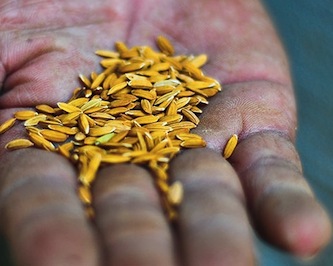 Even if importing rice is not the cheapest investment to make, it remains a profitable option for everyone. Companies make a profit based on such high demand. And Africans get the taxes and fees that they need to support their economy and industrial life. Companies pay significant taxes when they import rice in Africa and especially in such a high demand country like Benin.
Even if importing rice is not the cheapest investment to make, it remains a profitable option for everyone. Companies make a profit based on such high demand. And Africans get the taxes and fees that they need to support their economy and industrial life. Companies pay significant taxes when they import rice in Africa and especially in such a high demand country like Benin.
When it comes to importing rice, this is a process made in several ways. The percentages of imported rice are 20% bulk, 24% container and 56% break-bulk. These percentages vary across the continent, but almost everywhere, the break-bulk is the preferred one. Maize is seen as the central grain in Benin, but net imports of rice increased in the past years.
In Benin, the rice mill is not so developed. And the paddy rice production is used to supply rice demand for bigger countries like Nigeria. These agricultural strategies leave little amount for locals. That is why; importing rice is the best choice in this state.
The import of rice in Benin had a positive impact not only on the local economy but also on the general health of the urban population. While maize is easier to grow and harvest, not the same can be told about rice.
Rice Importers in Africa
Since rice became so demanded in many African countries, the authorities had to relax some of the norms. Companies can import rice now in an easier way and larger quantities. The bureaucracy has been reduced in the past years, and the entire import process became accessible to more producers worldwide. Because the rice market became so popular both for the Africans and importers. Africans get the rice they need for a healthy diet and companies sell large quantities of it which brings them more profit. It is a win-win situation, and it seems to become even more profitable as time goes by.
To import rice in Africa, all companies need to do is follow some minimal regulations. Since rice is seen as a priority and a security food for countries like Benin, companies worldwide rush to explore this opportunity. There are even certain partnerships developed to stabilize the supply of rice for Africa in areas like Benin.
Countries located in South Africa tend to be more prolific when it comes to growing their rice. But in Benin, growing enough to supply for the population remains a struggle. The partnerships made between Africans and different rice suppliers are sustained by farmers, authorities and the community. Continuo rice importers are trying to break into the African market and distribute their products for the long run. And this is the case for many Asian countries that are welcomed to bring this valuable grain to the continent.
Business Opportunity in Benin Rice Farming
With such a big demand for rice, Benin also considered new ways to grow their own. Even if for now, this is not a reliable option, they are trying to develop their domestic rice market. Even if West African countries such a Benin have enough land and water to cultivate rice as they do with other grains, the problem resides in the financial aspect. The main struggle is attracting long-term investors to support the farming industry of the country.
Benin would need support when it comes to growing rice, storage and processing the goods after they are harvested. Even if rice is relatively cheap to grow, there is a long process from growing it to selling it and cooking it. And local African market can’t sustain this process, at least not in the long run.
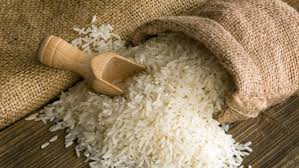 Benin’s population tends to prefer white rice, but they are cultivating other types because they have to export it to the neighbor countries. Such a strategy is not one that will allow Benin to develop their domestic rice market. However, if foreign investors would explore its land, this country would be much more profitable. Foreign companies can supply the rice demand in Benin, or they can invest in the country and develop farms to grow it. It is a long process that might take several years. And in all this time, Benin remains one of the largest rice importers in Africa.
Benin’s population tends to prefer white rice, but they are cultivating other types because they have to export it to the neighbor countries. Such a strategy is not one that will allow Benin to develop their domestic rice market. However, if foreign investors would explore its land, this country would be much more profitable. Foreign companies can supply the rice demand in Benin, or they can invest in the country and develop farms to grow it. It is a long process that might take several years. And in all this time, Benin remains one of the largest rice importers in Africa.
Investing in Benin’s farming system would be profitable for both foreign companies and locals. On the one hand, the companies would access cheaper working force to grow the rice and process it. And on the other hand, Benin’s local market would be able to have their rice production at a lower price. In time this could be a great source of rice for the neighbouring countries as well, and the advantages could continue! Many people would get jobs as well so the entire local economy would be blooming in just a matter of years. It is possible considering that half of Benin’s population lives in rural areas.
Africa Business Pages Facilitates Rice Imports
For those who are not sure how to start importing rice, Africa Business Pages has launched a special initiative called Business Matchmaking. Any importer can enjoy the services of Africa Business Pages new initiative which will facilitate the importing process significantly. By registering a free 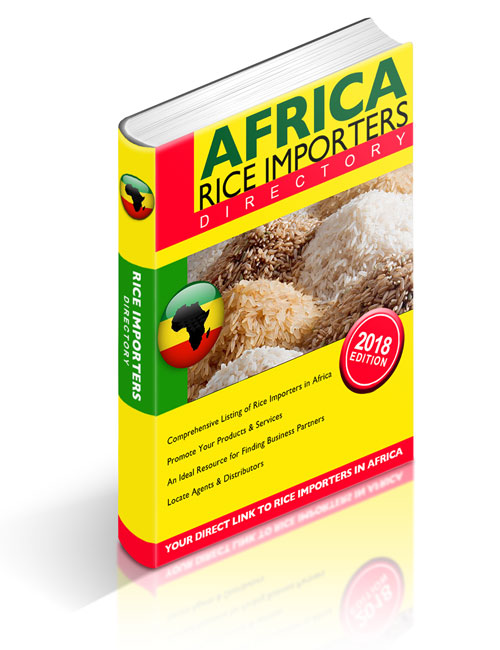 account on Africa Business Pages, importers are provided advantages such as a personalized import plan based on their needs. Our internal business matchmaking system also helps importers to get qualified quotation from suppliers of rice from all across the world. as well as add the right insurance to their goods. This helps importers of rice in Africa to help verify the goods, plan the best shipment process and also provide the right import documents.
account on Africa Business Pages, importers are provided advantages such as a personalized import plan based on their needs. Our internal business matchmaking system also helps importers to get qualified quotation from suppliers of rice from all across the world. as well as add the right insurance to their goods. This helps importers of rice in Africa to help verify the goods, plan the best shipment process and also provide the right import documents.
Importers of rice in Africa also use the Africa Business Pages to contact the most trusted suppliers of rice from all across the world – thereby providing a perfect bridge between the global and African markets. The internal systems of Africa Business Pages in every registered user's dashboard can be used for any kinds of imports when it comes to food, automobile spare parts, electronics, tyres etc.
About Benin:
Benin officially named the Republic of Benin is a country situated in West Africa. Benin is a neighbor with Niger, Burkina Faso, Togo, and Nigeria. The country has a population of 10,448,647 from which half live in the urban area. It is a very well developed area of Africa with a wide economy. And rice is one of the most commercial foods that can be found in Benin.




